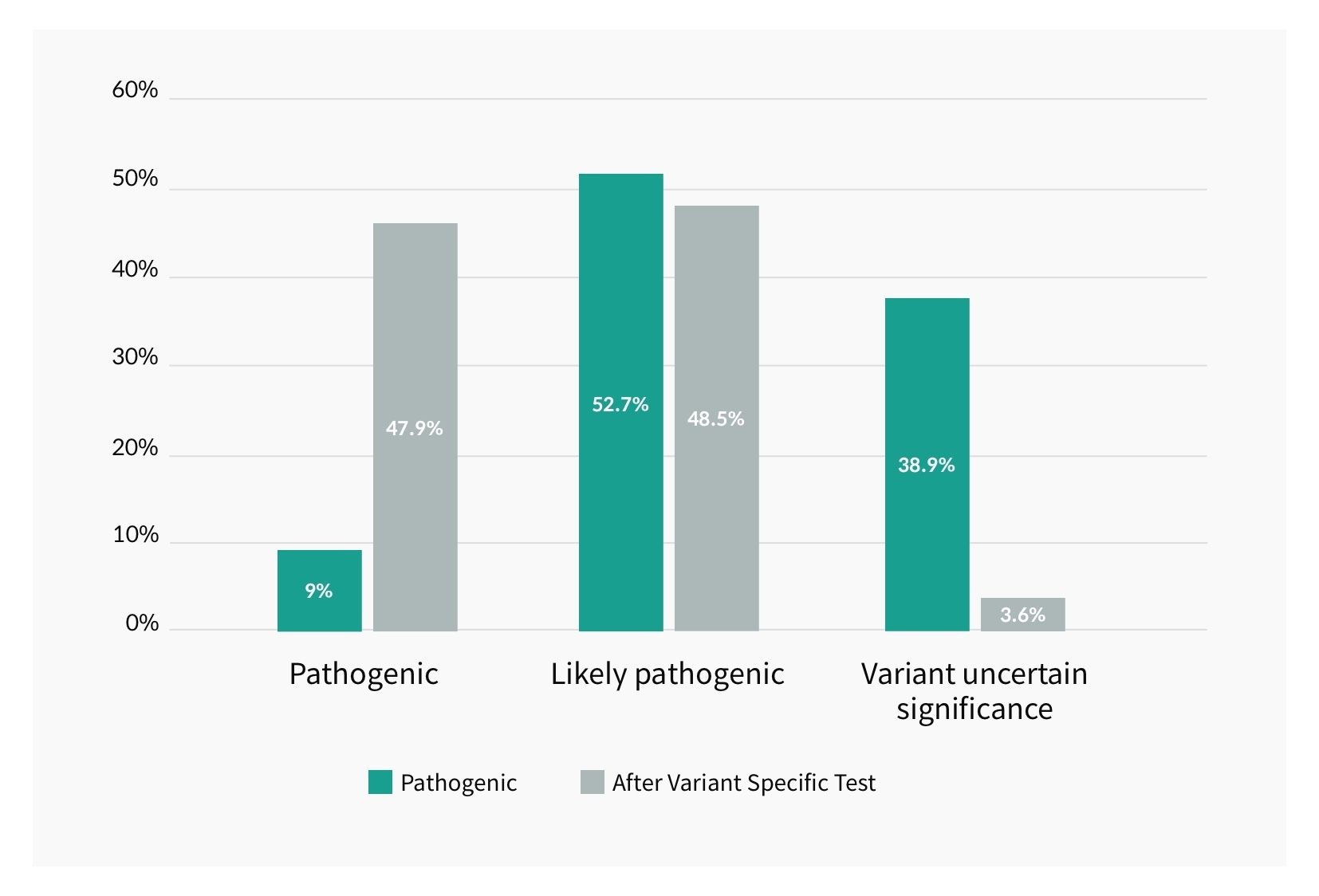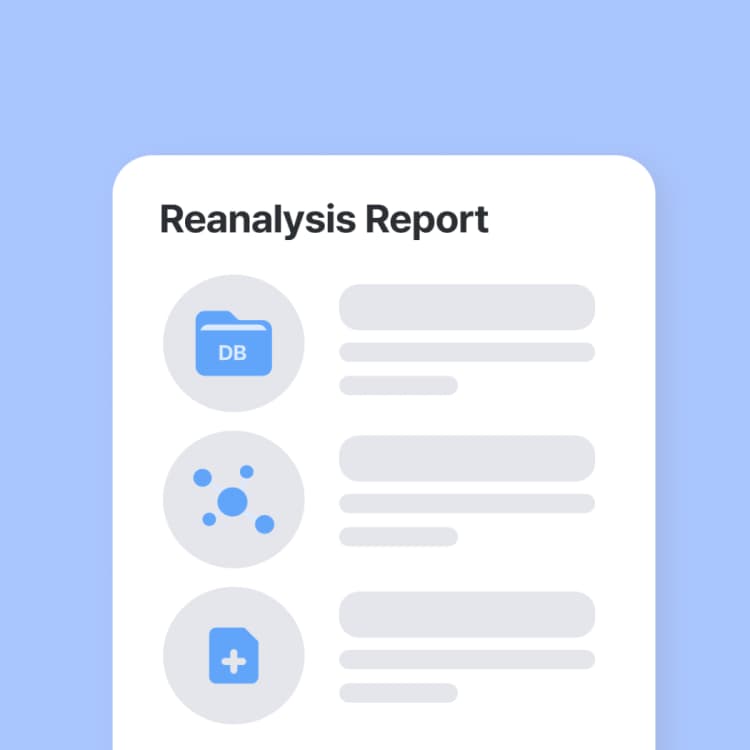What is Variant Specific Testing?
Once a patient is diagnosed, it can be recommended for family members such as parents or siblings to be tested using a Variant Specific Test. What is a Variant Specific Test (VST)? What is its purpose? What are its benefits? Let’s take a closer look.
What is Variant Specific Testing?
A Variant Specific Test (VST) is an elective genetic test that uses sanger sequencing technology to detect and segregate a specific variant or variants. There can be some confusion about what a VST is because it may also be known as Family Variant Testing or Targeted Variant Testing. Due to this unconformity by researchers and companies alike, there may be the misunderstanding that they are different tests, but they serve the same purpose.
The purpose of the test may vary depending on who takes the test. When parents take the VST, the results serve to increase the certainty of diagnosis of the original patient, by confirming whether the variant is inherited or a de novo mutation. When other family members such as siblings or relatives take the VST, the results serve to determine if a family member suffers from the same variant that could lead to future health risks. Ultimately, the results of the VST will help to further confirm the diagnosis of the original patient.

When is Variant Specific Testing Used?
Variant Specific Test (VST) can be conducted for Positive and Inconclusive genetic test results. Following ACMG/AMP guidelines, the results of an exome test will be determined based on the rules of variants classification. The result of an Exome can be either Positive, Negative, or Inconclusive (In the case of 3billion).
VST is highly recommended when patients receive a Positive exome test. The VST is then conducted on the family members to determine if the detected variant is inherited which could lead to health risks among family members or to confirm a de novo mutation unique to the patient.
In the case of an Inconclusive test, VST will provide further evidence that would be used to reclassify the original Inconclusive test into either Positive or Negative, reaching a final diagnosis. This is a key tool to increase the certainty of diagnosis.

Curious How We Boost Diagnostic Accuracy?
Get the newsletter every month and discover the breakthroughs with the latest reanalysis report.
What are the Benefits of Variant Specific Testing?
One of the benefits of VST is that it can be the go-to test in finding health risks among blood relatives. When a variant is detected in the original family member, thanks to the continually improving technology and its relative accessibility, VST is the easiest way to find risk among blood relatives. This can be used to find current genetic risks within family members suffering from similar symptoms, or even to plan family health. As the target variant is detected in one of the family members through WES or WGS; VST will be the quickest and most effective testing to be performed as the next step instead of other panel, WES, or WGS testing for other family members.
Cost is also a benefit of VST; Whole Exome Sequencing (WES) typically ranges from USD 1,200 ~ 2,500, and panel tests typically range from USD 300 ~ 600. In addition, these tests may not be covered by either private or public health insurance, placing the economic burden wholly on the patient. However, the economic burden is substantially less for VST, ranging from $150 ~ 200. The time taken to receive a result is also greatly reduced. While you may have to wait 4~6 weeks on other genetic tests, you could receive the result of a VST in as little as 2 weeks.
Finally, a very important and critical benefit of VST is that it can help in increasing the certainty of a diagnosis. Figure 1 below shows the distribution of the probability of pathogenicity of identified variants before Variant Specific Testing and after Variant Specific Testing.1 The percentage of pathogenic variants has increased for pathogenic (P) results. This is because more genetic information is gathered from blood relatives to increase the certainty of diagnosis. However, for many of the initially released variants of likely pathogenic (LP) and uncertain significance (VUS) results, they are confirmed to be not significant because the detected variants are found to be non-disease causing within the family members. This proves that Variant Specific Testing plays a critical role in increasing the certainty of diagnosis.

Not many physicians and patients are aware of this test or just consider it as an elective test. However, it can play a key role in confirming the diagnosis and to understand a family’s genetic risks.
Reference
Seo GH et al., Diagnostic yield and clinical utility of whole exome sequencing using an automated variant prioritization system, EVIDENCE. Clinical Genetics, 98(6), 562–570. (2020)
Get exclusive rare disease updates
from 3billion.

Juan Alberto Aguayo
Developing strategies to enter new markets, focused on offering specialized molecular healthcare to underserved populations, creating global health impact.







